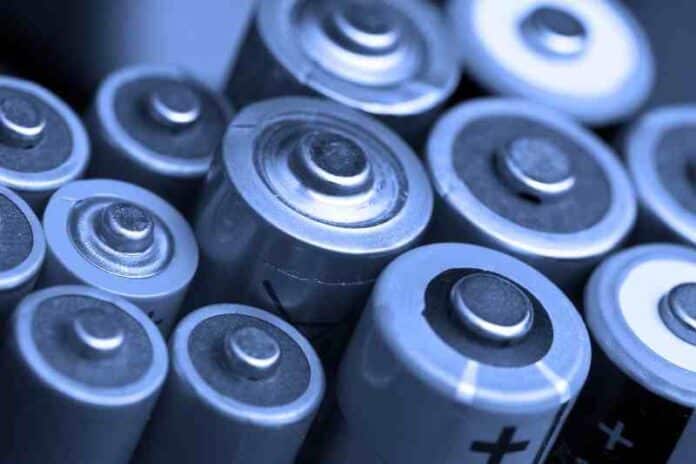
There’s something about running out of power that terrifies us.
That’s why we’ve invented batteries. Batteries are an essential part of contemporary life. But, it’s not always apparent how to deal with them after you’ve used them or they have lost their ability to store a charge.
Enter from stage left: battery recycling. Even if you’ve seen contradictory reports, experts agree on one thing: recycling used batteries is the right thing to do.
Keep on reading for our full breakdown of everything you need to know about the nature of batteries and how to recycle them properly once they join other batteries in energy heaven.
Why Even Bother Recycling Batteries?
You’ll find toxic compounds included in almost all batteries, regardless of brand. Think about lead, cadmium, lithium, or sulfuric acid. Pollutants like these may seep out of a landfill and poison groundwater.
They can also harm sensitive ecosystems and even find their way into the food chain if you dispose of your outdated batteries there.
As a result of improper battery disposal, there is a risk of short circuit, overheating, and even a fire. Because of this, your state might have outlawed the disposal of batteries in the garbage in certain jurisdictions.
Batteries Aren’t All Created Equal
The batteries that power your TV remote, your car’s starter, and everything in between are vastly different.
You can find toxic heavy metals and other substances in car batteries, rechargeable batteries (such as those in your mobile phone, AAs, 9-volts), and even button cells.
This guarantees that you should treat the interior materials carefully. This reduces the need for mining and is often mandated by law.
When it comes to basic batteries, such as disposable alkaline AAs, they aren’t nearly as hazardous.
Mercury was a common ingredient in batteries prior to the 1990s when Congress stepped in to regulate the industry and made it illegal.
Primarily, today’s core batteries are chemically safe. However, this does not imply that you can just discard them. This does not necessarily imply they are safe or environmentally friendly; they may be less toxic than lead-acid batteries, but it doesn’t guarantee they are safe or environmentally friendly.
You should always strive to recycle batteries, regardless of the kind you’re working with.
How to Prepare for Battery Recycling
There are a few measures you should take while collecting and storing old batteries for recycling.
When it comes to storing your batteries, don’t throw them in a bag or put them in a metal container randomly.
However, even if you can’t power your gadget using an old battery, improper handling might ignite the substance. The contact points should not come into contact with each other or anything metallic or conductive while you store them in a safe container.
We believe that the safest way to store your batteries is to save the original packaging and repurpose it to contain your expended batteries. A permanent marker might help you distinguish the old batteries from the new ones, he advises.
The first step in disposing of batteries is to verify local regulations.
Currently, customers will follow the law in twenty-two states to dispose of their trash in a certain manner. California has the most stringent laws in the United States.
You can’t get rid of single-use batteries cannot in garbage in this state. And, many others will require you to recycle rechargeable batteries anyway.
How to Recycle Batteries 101
When in doubt, you’ll want to follow the five “Cs.” This will help you figure out the correct way to dispose of and recycle the batteries you have on hand.
Let’s see what does “C” means.
Chemistry
What are the battery’s labels? When collected for recycling, items marked “lithium” must have their terminals secured.
You also want to familiarize yourself with the lithium deep cycle battery.
Then, you can use transparent plastic tape, such as scotch tape, for this task. Only the contact ends of the battery need to be protected.
Capacity
Are there more than 9 volts in the battery or battery pack? It is necessary to tape the terminals of the device if this is the case.
Batteries for cordless tools are a good example of this. This may need additional packing for high-capacity batteries in automobiles and other equipment.
Construction
In what manner does the battery’s construction take place? How a battery is built impacts its travel and recycling capabilities.
Non spillable or sealed batteries may be used in the same way as regular home batteries. The terminals of certain batteries may be shielded by design and may not need the use of electrical tape.
For batteries containing liquids, recycling is handled differently than for dry cells. Disassembled or in-package batteries for electric or hybrid cars may be submitted to a recycler. Find the finest option by working with the battery recycler.
Swelling or Cracking
If a lithium-based battery is damaged, faulty, or recalled, it must be stored and transported in a specific manner.
This may also apply to lithium batteries that are unavailable to the average customer, such as those found in recalled cell phones.
Container
How much room does the battery recycling container have to work with?
Batteries are not accepted by many curbside recycling programs, so customers must look for alternative options.
Battery chemistries may be restricted in certain collecting pails, whereas other pails come with a certification to hold all sorts of batteries. Make that the shipping and recycling requirements for the batteries are covered by the recycle container’s specifications.
Battery Recycling Near Me: Simplified
Battery recycling doesn’t have to be as hard or complex as rocket science. We hope that our guide has shed some light on the recycling process, and how to safely dispose of your batteries.
And, if you liked reading our article, then you’ll love checking out our additional tips and trick. Those (and many others) you can find in our technology section.

